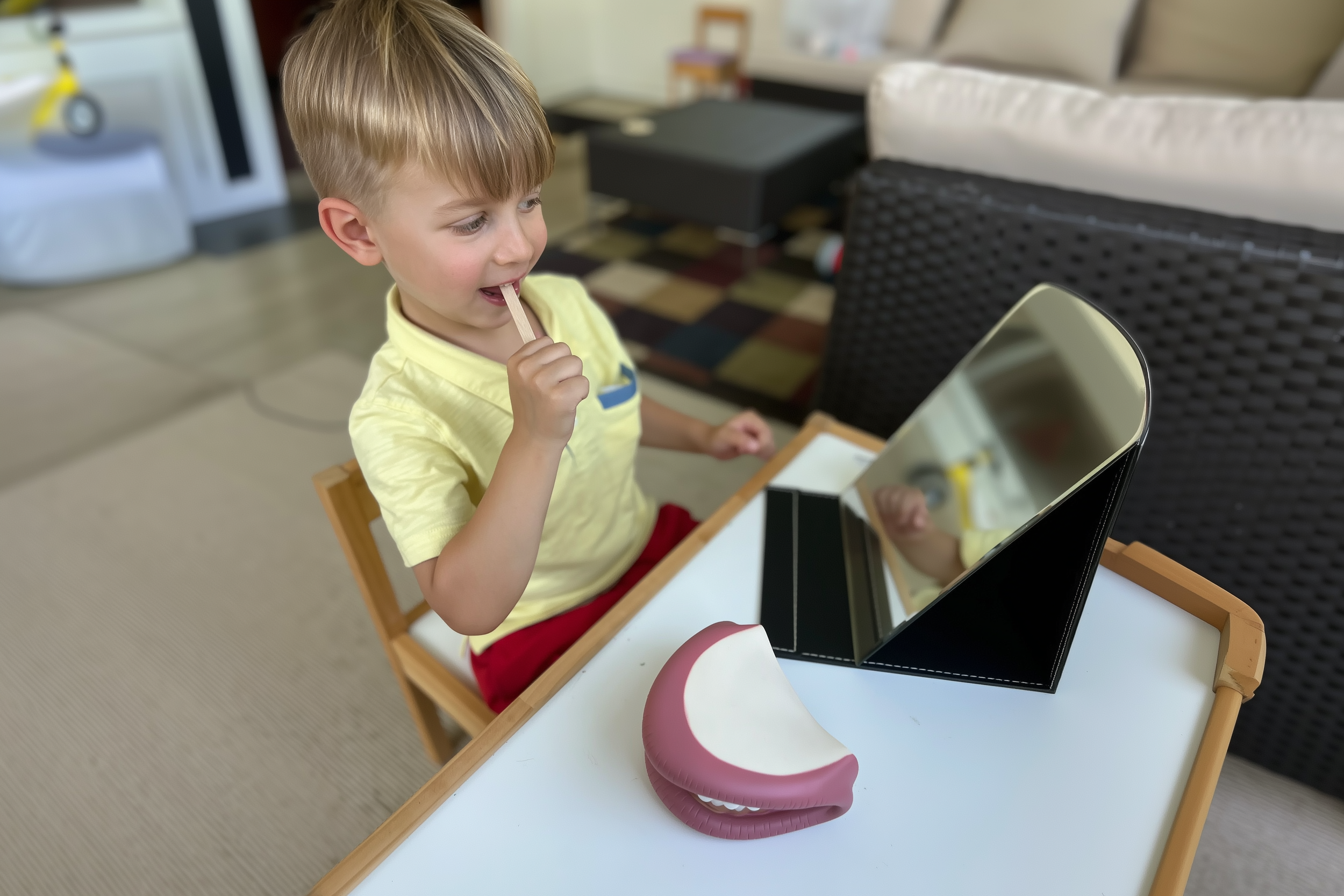⬤ Orofacial Myofunctional Therapy
Restore healthy oral function
Myofunctional therapy (also known as orofacial myofunctional therapy) focuses on restoring healthy function in the face, tongue, lips, and jaw. Through gentle, exercise-based retraining, this holistic approach helps correct habits and patterns.
What is myofunctional therapy?
Myofunctional therapy retrains the muscles of the face, tongue, lips, and jaw. By improving posture and correcting oral habits, it supports speech clarity, safe swallowing, and long-term oral health.
Signs your child may benefit
Articulation difficulties
Reduced intelligibility
Dental abnormalities
Lip-tie
Tongue-tie (ankyloglossia)
Mouth breathing
Open mouth posture
Picky eating habits
Messy eating
Problems with chewing and swallowing
Sleep issues
Teeth grinding
Thumb sucking
Tongue thrusting
Common challenges we support
Muscle imbalances affecting swallowing
Oral habits like thumb sucking, nail biting, or clenching
Sleep-disordered breathing
Articulation and speech sound disorders related to oral function
Relapse after orthodontic treatment
Goals of Myofunctional Therapy
Normalize tongue and lip resting postures
Establish nasal breathing patterns
Eliminate improper chewing and swallowing patterns
Stabilize the dentition from extraneous orofacial muscle movement
Supporting the remediation of speech errors differently than some traditional methods
Address harmful oral habits including:
Prolonged pacifier use
Thumb and/or finger sucking
Fingernail, cheek, or lip biting
Tongue sucking
Clenching or grinding of the teeth
-Adapted from the IAOM website
Why it matters
When oral muscles don’t function properly, they can impact speech, growth, and overall health. Myofunctional therapy restores balance, helping children speak clearly, eat safely, and breathe more efficiently.
⬤ Resources
Helpful information
What are Orofacial Myofunctional Disorders?
International Association of Orofacial Myology
⬤ Contact
Start with a consultation
Discuss your concerns in a free phone call and learn how therapy could support your child.



